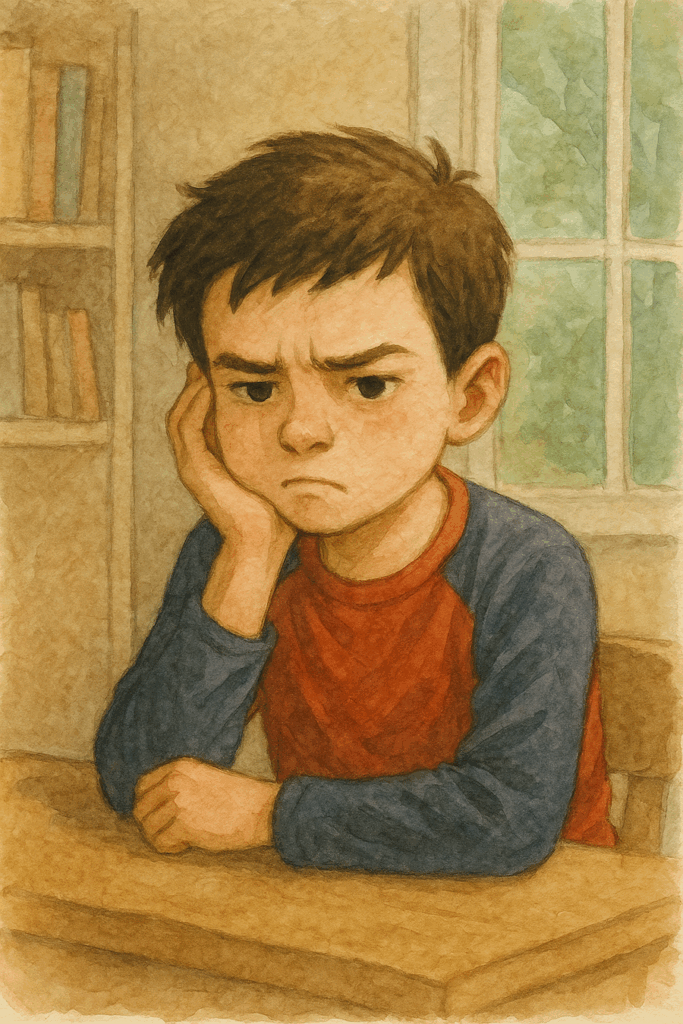“They’re so clever—but why do they melt down over the smallest things?”
If you’ve ever found yourself asking this question about your child, you’re not alone.
Gifted children—those who show advanced intellectual abilities well beyond their age peers—often come with another trait that’s harder to see at first: emotional intensity. And while their quick minds might impress teachers or peers, their emotional sensitivity can create tension, confusion, or even overwhelm at home.
Many parents of gifted children describe a combination of brilliance and fragility:
- A child who can speak like an adult—but sob over a broken toy
- A child who devours books—but can’t sleep due to existential fears
- A child who corrects everyone—but dissolves in shame when corrected themselves
- A child who craves fairness—but reacts with explosive frustration when things feel unjust
These aren’t signs of “being difficult.” They’re signs of a brain and nervous system that processes more, faster, and deeper.
And they need support that honours both their strengths and their sensitivities.
What Makes Gifted Children Emotionally Intense?
Giftedness isn’t just about IQ. It affects the whole child—especially how they feel, perceive, and relate to the world.
Common emotional and psychological characteristics include:
- Perfectionism and fear of failure
- Heightened empathy or moral concern
- Low frustration tolerance
- Overexcitabilities (in areas like intellect, emotion, sensation, imagination, and movement)
- Difficulty switching off a busy mind
- Tendency toward black-and-white thinking or over-analysis
- Social mismatch with peers or a sense of “not fitting in”
- Existential questioning well beyond their years
In short, they’re not just thinking deeply—they’re feeling deeply too.
Why These Kids Often Get Misunderstood
Because gifted children may appear “mature,” adults often expect them to act like little adults across the board. But emotional development does not always match intellectual development.
This asynchronous development means a child might:
- Debate complex issues fluently, but fall apart emotionally when tired
- Correct an adult’s mistake, then melt in shame when corrected
- Crave challenge and freedom, but also cling to routine for security
In schools or peer groups, they may be labelled:
- Bossy
- Dramatic
- Oversensitive
- Argumentative
- Anxious
- “Too much” or “too intense”
These labels hurt—not just children, but parents who feel like no one sees the whole picture.
Supporting the Emotional World of Your Gifted Child
In therapy, we work with families to support both the child’s emotional regulation and the family’s confidence in managing intensity with compassion and structure.
Here’s how:
💬 1. Normalising Their Inner World
Gifted kids often feel “weird” or “too different.” Therapy helps them understand:
- Why they think and feel the way they do
- That other people also feel deeply (even if differently)
- That sensitivity isn’t a flaw—it’s a superpower that needs calibration
- How to name and track their emotions without shame
Just being understood can reduce emotional reactivity and isolation.
🧘 2. Regulation Tools for Big Emotions
Gifted kids often need to develop skills their brain skips over—especially in regulating emotions and tolerating imperfection.
We explore:
- Somatic grounding techniques (body-based tools for calming)
- Mindfulness or guided visualisations suited for vivid imaginations
- Breathing exercises linked to story, metaphor, or rhythm
- Cognitive reframing for black-and-white or catastrophic thinking
- Creative emotional expression (e.g., drawing, journaling, symbolic play)
These tools don’t suppress emotion—they build fluency.
🧠 3. Managing Perfectionism and Self-Criticism
Many gifted children hold impossible internal standards. They can become rigid, avoidant, or critical when they can’t meet them.
We help them:
- Explore the difference between striving and fixating
- Build a tolerance for mistakes as part of growth
- Reframe failure as data—not identity
- Feel safe in “good enough” performance
- Talk back to their inner critic with compassion
Parent coaching also helps shift focus from outcomes to effort, learning, and balance.
👨👩👧 4. Strengthening Parent–Child Dynamics
Parents of gifted children often feel caught between extremes:
- Wanting to challenge their child without overwhelming them
- Holding boundaries without escalating conflict
- Celebrating uniqueness without overprotecting
Therapy offers:
- Co-regulation strategies
- Scripts for navigating shutdowns or meltdowns
- Routines that create safety and stretch
- Tools to reduce power struggles while increasing autonomy
- Insight into your own parenting triggers (especially if you were also gifted or misunderstood)
The goal is mutual understanding, not perfect compliance.
🌱 5. Reconnecting to Joy and Play
Gifted kids can become little adults too quickly—especially when they’re praised for achievement.
We often build in:
- Unstructured, non-performance-based play
- Time in nature to regulate and decompress
- Restorative rituals (reading under blankets, drawing freely, quiet time)
- Opportunities for awe, silliness, and softness
These moments restore energy and create balance.
🧭 This Isn’t About “Fixing” Your Child. It’s About Supporting Their Wholeness.
Giftedness isn’t always easy. But when supported well, it becomes a powerful, beautiful, and emotionally rich way of being in the world.
Therapy isn’t about dulling your child’s intensity—it’s about helping them live in it with skill, compassion, and joy.
I work with children, teens, and parents across Queensland and Australia via secure video therapy, and offer in-person sessions by request through Vision Psychology.
👉 Let’s Support the Whole Child—Together
If your gifted child is struggling with emotions, perfectionism, or social difficulties—or if you’re just unsure how to support their sensitive and intelligent nature—you’re not alone.
Contact us today to book a session. Together, we can nurture their intellect and their heart.

